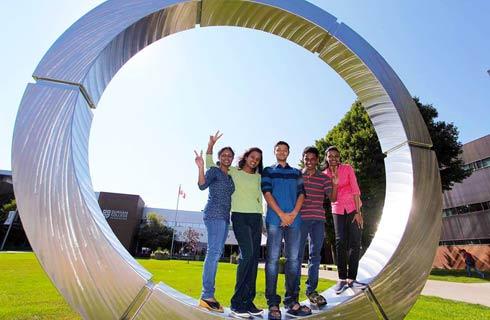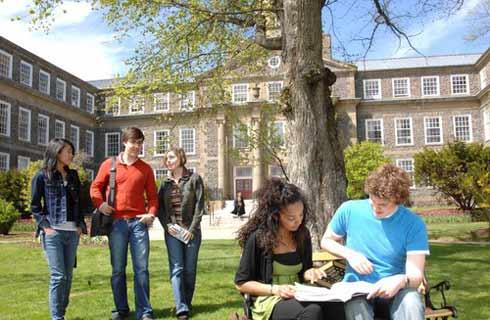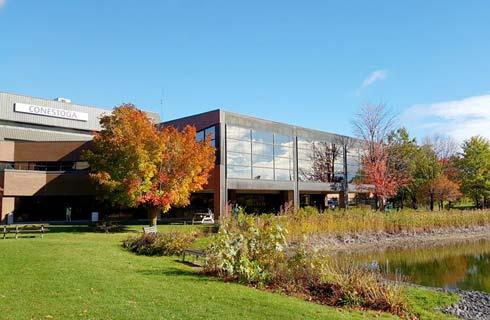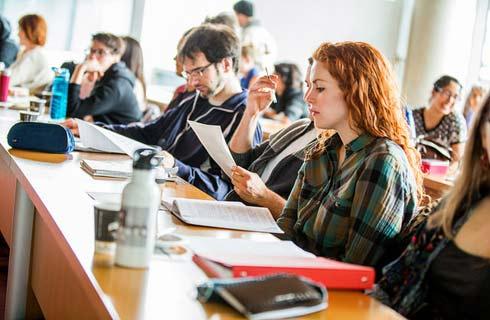地球与环境科学(安置年)理学士学位
BSc (Hons) Earth and Environmental Science (Placement Year)

学历文凭
Bachelor Degree with Honours

专业院系
Lancaster Environment Centre (LEC)

开学时间

课程时长

课程学费

国际学生入学条件
IDP—雅思考试联合主办方

雅思考试总分
了解更多
雅思考试指南
- 雅思总分:
- 托福网考总分:
- 托福笔试总分:
- 其他语言考试:
CRICOS代码: FF78
申请截止日期: 请与IDP顾问联系以获取详细信息。
课程简介
Geoscientists are increasingly recognised as playing a crucial role in meeting global challenges such as climate change, sustainable development, resource provision, and natural hazards. By placing your geoscience training within the broader context of the environment, you will gain knowledge of both the challenges and the potential solutions. Within your degree, you will consider both natural and man-made environments, to explore the main factors and processes that control today’s environment, how the environment has evolved to its current state and how environmental conditions may change in the future. In addition, your degree will draw upon the expertise of a number of our staff who specialise in Earth science including volcanology, geophysics, hydrogeology and glaciology, who deliver an exciting range of specialist topics to choose from. Your first year will address many of the fundamental themes of the Earth and environmental sciences, from understanding geology to learning about the atmosphere, weather and climate. Specialisation begins in the second year when we introduce Earth science-focused topics, and this degree gives you the flexibility to focus on a specific topic area, for example, geological hazards, soil science, environmental radioactivity or glacial systems. In your second year, core modules will prepare you for your third year dissertation project, which is an opportunity to research a subject that really interests you. You may choose a project with a substantial fieldwork component or, alternatively, conduct laboratory-based research or computer modelling. To prepare you for your work placement year, our Careers and Placements Team will provide advice and guidance on: the skills required to create effective CVs, cover letters and applications; tips and techniques on how to make an impact at interviews and assessment centres; how to create a relevant digital profile; and how to research employers and career sectors of interest. In addition, there is great emphasis placed upon developing self-awareness and on how to present yourself in a professional manner to employers. This optional provision will be delivered via a blend of traditional and digital methods including face-to-face workshops, online webinars, e-courses and 1:1 appointments. You will spend your third year on placement, which may be in a science or non-science position. The placement offers you the opportunity to work as a full-time employee of the organisation whilst still receiving both academic and pastoral support from Lancaster University. The University will use all reasonable effort to support you to find a suitable placement for your studies. While a placement role may not be available in a field or organisation that is directly related to your academic studies or career aspirations, all placement roles offer valuable experience of working at a graduate level and gaining a range of professional skills. If you are unsuccessful in securing a suitable placement for your third year, you will be able to transfer to the equivalent non-placement degree scheme and continue with your studies at Lancaster, finishing your degree after your third year. For your second and third year, modules will build upon the themes from year one, and you will have the opportunity to take part in popular field courses, including to Mount Etna in Sicily. There, you will study volcanic processes and learn how the local population can manage the impacts of volcanic phenomena. You will also have the opportunity to engage in fieldwork at Carrock Fell in the scenic Lake District World Heritage Site and take further optional residential modules, from studying glacial processes in Switzerland to environmental challenges in Croatia.
相关申请
 预科
预科 奖学金
奖学金 实习机会
实习机会 在校学习
在校学习 跨境学习
跨境学习 校园授课-线上开始
校园授课-线上开始 在线/远程学习
在线/远程学习
学校排名

世界排名146
数据源:泰晤士高等教育世界大学排名
关于兰卡斯特大学

兰卡斯特大学是一所研究型大学,位于英格兰西北部兰卡斯特。这所大学坐落在宽敞的绿色校园中,拥有由来自世界各地120多个国家和地区的学生组成的群体。来到兰卡斯特大学的学生将成为国际群体的一员,由世界一流的教师为其讲授知识。兰卡斯特大学在英国大学排行榜上位列前15名: 在2026年完全大学指南中位列第10位 在2026年卫报大学指南中位列第14位 在2026年《泰晤士与星期日泰晤士优秀大学指南》中排名第15兰卡斯特大学还受到全球认可获得QS 5星评级。兰卡斯特大学与全球教学和研究机构拥有广泛的联系,这为学生提供了许多极好的海外留学或工作的机会。兰卡斯特大学不仅与美国和中国的大学有着紧密联系,还与中国、德国、加纳、印度尼西亚和马来西亚的院校建立了战略教学合作伙伴关系。兰卡斯特大学的学生可以充分利用该校的现代化绿色校园。校园周围环绕着林地,学生可在林间小径步行游览。校园中还有许多绿色空间,是学生们享受安静时刻或与朋友交往的理想场所。除了大量休闲绿地和一流的设施,校园中还有美术馆、剧院、电影院、餐馆、咖啡馆、酒吧、邮局和美发沙龙。图书馆学期期间每周七天全天24小时开放,提供大量科技化工作区和安静的学习区,以满足各种学习方式。学生还可以免费租借图书馆的个人电脑和笔记本电脑。
本校相关课程

生物医学理学士学位
学历文凭
Bachelor Degree with Honours
开学日期
课程费用总额


生物学与心理学学士荣誉学位
学历文凭
Bachelor Degree with Honours
开学日期
课程费用总额


生物科学与生物医学学士学位
学历文凭
Bachelor Degree with Honours
开学日期
课程费用总额


生物科学理学士荣誉学位。
学历文凭
Bachelor Degree with Honours
开学日期
课程费用总额


生物化学与遗传学士学位
学历文凭
Bachelor Degree with Honours
开学日期
课程费用总额


生物化学学士学位
学历文凭
Bachelor Degree with Honours
开学日期
课程费用总额





















 英国
英国




